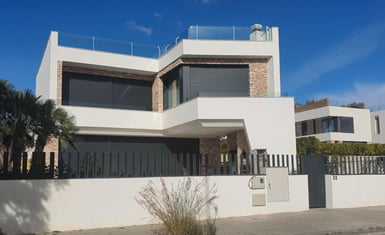Pre-insulated pipe systems are suitable for heating and cooling networks; and are designed to minimise energy losses, being one of the most efficient solutions for installations where thermal insulation is required.
Read moreThe production of polyurethane rigid foam sandwich panels has become a fundamental tool for high performance building systems.
Read moreSandwich panels are one of the most economical insulation solutions, with greater durability, shorter installation time, less need for maintenance and greater capacity for acoustic and thermal insulation. In addition, they can be adapted to all building needs and...
Read moreSynthesia's SynthePUR D-9762-Z-36 is an advanced solution for insulation by pouring in prefabricated houses, which improves energy efficiency and provides thermal and acoustic insulation to the building solution.
Read moreSandwich panels are a modular building material designed to cover buildings and structures. These panels consist of two layers that form the outer structure and ensure form, weather resistance and rigidity. They contain a core that provides thermal and acoustic...
Read moreSandwich panels are very versatile insulation systems, consisting of two sheets, usually made of metal, between which there is an insulating core. The characteristics and performance of sandwich panels will therefore be determined by the type of material they contain...
Read more






